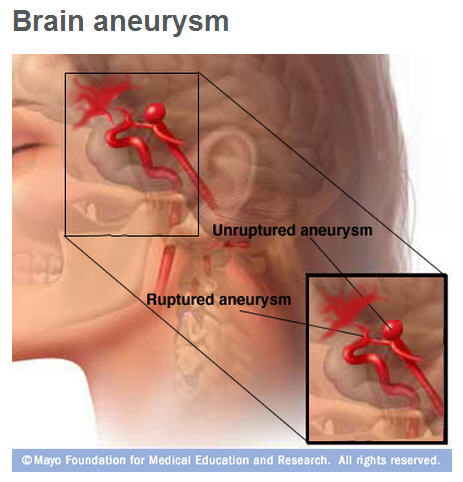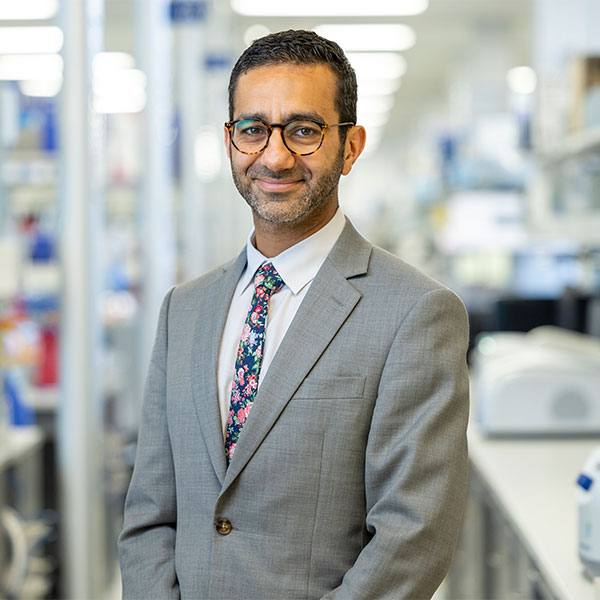Editors note: September is National Brain Aneurysm Awareness Month
Brain aneurysms affect millions of people, with 6.7 million in the U.S. living with unruptured aneurysms. Globally, they can cause nearly 500,000 deaths annually.
Dr. Chris Fox specializes in endovascular and cerebrovascular neurosurgery at Mayo Clinic. He says not all brain aneurysms need to be treated immediately. However, a brain aneurysm that bursts or ruptures causes a serious medical emergency. Dr. Fox explains who may be at higher risk for a brain aneurysm in this Mayo Clinic Minute.
Journalists: Broadcast-quality video (1:00) is in the downloads at the end of this post. Please courtesy: "Mayo Clinic News Network." Read the script.
A brain aneurysm is a weak spot in a blood vessel that bulges out. If it bursts, it can cause dangerous bleeding within the brain.

Who is at risk?
Some people are at higher risk says Dr. Fox.
"We think there's likely a genetic component, something that predisposes individuals to developing an aneurysm, and then perhaps a secondary injury to the blood vessel," he explains.
Screening is recommended for those who have a close relative with a brain aneurysm.
"That's usually done with an MRI of the blood vessels called an MRI angiogram," says Dr. Fox.
Along with genetics, there are other risk factors.
"The most common things that can cause that are high blood pressure, hypertension, smoking and perhaps some other environmental factors," he says.
Certain drugs can raise blood pressure quickly.
"Illegal, illicit drugs, like cocaine or methamphetamine — they can increase the risk of an aneurysm rupture," says Dr. Fox.
And that can be life-threatening.
"That's a neurosurgical emergency. We want to get the aneurysm taken care of and secured as soon as possible," Dr. Fox says.
Lifestyle changes
If you have an unruptured brain aneurysm, these changes may reduce the risk of rupture:
- Quit smoking.
- Manage high blood pressure.
- Eat healthy and exercise to help lower blood pressure.
- Avoid drugs like cocaine or meth.







